8 Recipes for Life: Find Your Fulfilment by Petlo
This article contains affiliate links. We may earn a small commission on items purchased through this article, but that does not affect our editorial judgement.
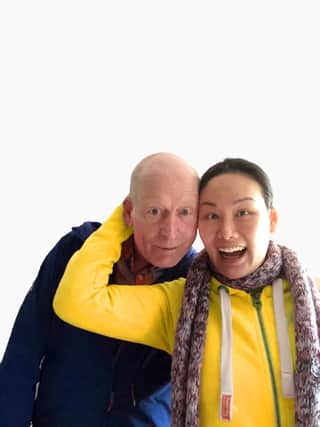

Self-help coaches ‘Petlo’ provide a sumptuous banquet for total personal transformation in their practical new guide, as Timothy Arden discovers
Take two seasoned self-help coaches, an ounce of common sense, and a generous sprinkling of inspiration. Mix together and serve in a clear and easy-to-follow format, and you have a fresh and powerful new guide to finding true personal satisfaction.
8 Recipes for Life: Find Your Fulilment is aimed at anyone who wants to become happier, wiser and more successful, both in their personal and professional lives. The book’s unique premise is that transformation is like cooking a meal: we all have different ingredients at our disposal and we all have something to offer. Like a recipe book, then, it helps readers make the best ‘meal’—or rather, lasting personal change—with the specific set of ingredients they already have stored away in their minds.
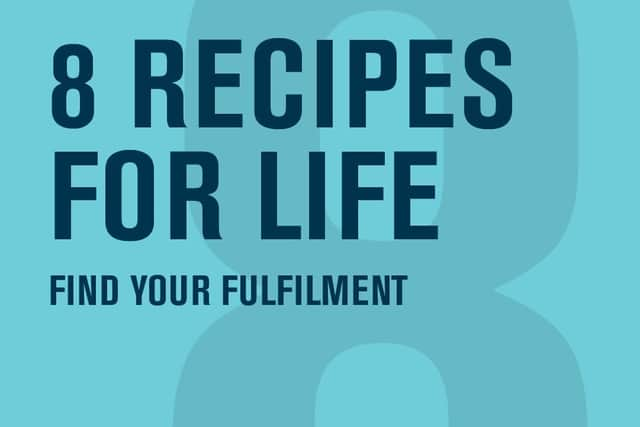

In creating their book, co-authors, business partners and real-life couple Elaine Lo and Pet Sutton, AKA ‘Petlo’, have drawn upon many years of experience as business and life coaches. They have also, between them, read many of the most popular self-help books, and have attended a range of personal development courses from the Dale Carnegie course to Neuro-Linguistic Programming. In other words, and to extend the metaphor, they are gourmets of self-improvement and have the know-how to formulate and present the eight essential life lessons that they’ve found to work most effectively, for themselves and their clients alike.
Early on within 8 Recipes for Life we learn that what typically holds a person back in life is self-limitation, be that conscious or unconscious. The mind has incredible potency for effecting change, but can as easily construct barriers as knock them down. Each ‘recipe’, then, can be best understood as empowering beliefs that are easy to adopt yet can bring great results when followed with conviction. While each can, when applied alone, effect positive changes, they work best in combination for those seeking the biggest transformation.
However, you have to be hungry for change, and Petlo underlines this crucial point from the get-go, both in the introduction and Recipe 1 (“We Don’t Want Comfort”). As they explain, while few people are truly happy and fulfilled, many may well be comfortable and will be resistant to leaving that comfort zone. Though any new venture can seem scary at first, the reality is that even if we think that we’ve secured all that we want, that fulfilment quickly depreciates. As they put it, we are “human becomings” rather than beings, and we must keep developing as a person lest we stagnate.
The authors, at no point, attempt to prescribe exactly what it is that we want to feel fulfilled as that is a matter that can only be decided by the individual. What they can do is provide the essential tools for reaching those goals, be it learning a new hobby, finding new love or rekindling romance, or becoming more effective at work.
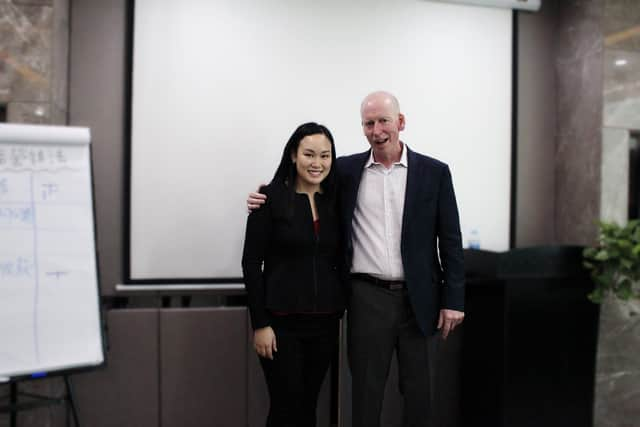

Recipe 2, “Embrace inconsistencies”, provides a gentle mental retuning to allow better decision-making, and interpersonal relationships. Throughout life we build a ‘rule book’ based on past experiences for making decisions. Errors, however, can creep in, and as Petlo make clear, sometimes surface inconsistencies, upon a little more reflection, hide a deeper level of consistency that can allow new rapport with others.
As mentioned above, we can create barriers, and that’s what Recipe 3, “Don’t Own Your Weaknesses”, is primarily concerned with. It provides a wealth of take-home guidance into breaking down those mental blocks that hold people back from their goals, however many times they’ve tried.
Transformation, however, isn’t limited to ourselves. We are as much defined by our interpersonal relationships and Recipe 4, “Don’t Be Too Nice”, ensures that we have the right approach to these interactions. Namely, and as the title succinctly puts it, while its good to give and to be willing to compromise, we don’t always want to be doing so as that erodes personal boundaries, which is bad for our self-esteem and risks inviting exploitation.
Petlo describe a relationship—which could equally apply to a mate, friend or work colleague—as a tango: “It is not dancing unless we provide some positive resistance, against which our partner can work.” Having boundaries is perfectly acceptable; in fact, without them a relationship simply cannot survive long-term.
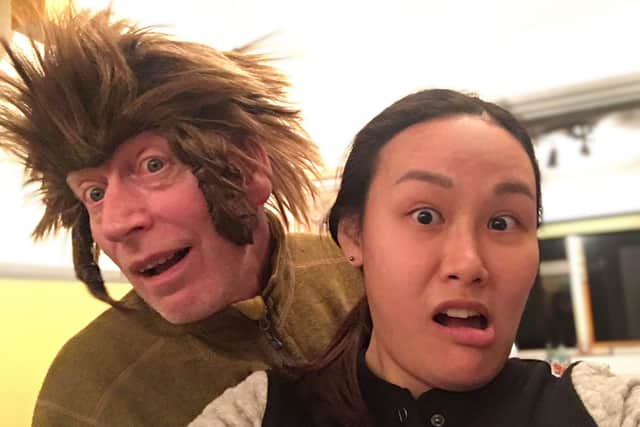

Recipe 5, “Follow Your Head And Your Heart, At The Same Time”, tackles another relationship, that between the head—the sensible, logical force driving our decisions—and the heart, which can be understood as a childlike, emotional force that wants to secure our deepest desires. While we’ve all experienced this inner conflict, Petlo assert an entirely original model to bridge the divide between the head and heart, ‘Head–Heart Dualism’, so that the two can co-operate harmoniously within a person, rather than continually fighting it out. This chapter lays bare how these two forces operate, provides many good examples of when it’s preferable to defer to either, and goes step-by-step through how to combine head and heart thinking so decisions are both grounded AND emotionally rewarding.
By the end of the fifth chapter readers will have learned how to break out of a limiting mindset, how to recognise and pursue goals without inner conflict, and how to enjoy healthy relationships. Recipe 6 (Forget About ‘Self-Awareness’) takes this further, especially complementing Recipe 1, by covering how we can enhance our performance, decision-making and skill acquisition by learning how to become observers in our own lives. In effect, how to become aware of ourselves at a more detached and objective level as opposed merely to being self-aware, which can lead to embarrassment when we are unsure of ourselves.
Petlo describe this state as “intentional living” and it represents a powerful discipline for self-improvement that, when mastered, can help us find the ‘flow state’, that feeling of being fully focused in the present activity, by allowing us to step outside of our daily dramas to see the bigger picture.
The final two recipes cover, in order, vulnerability and meaning. By vulnerability, Petlo mean not being afraid to open up to others; to show people the authentic you. Being vulnerable, they explain, isn’t a weakness but a strength. It allows for more rewarding and harmonious relationships, and avoid the pitfalls and pressures that come when you consistently wear a mask in other’s company.
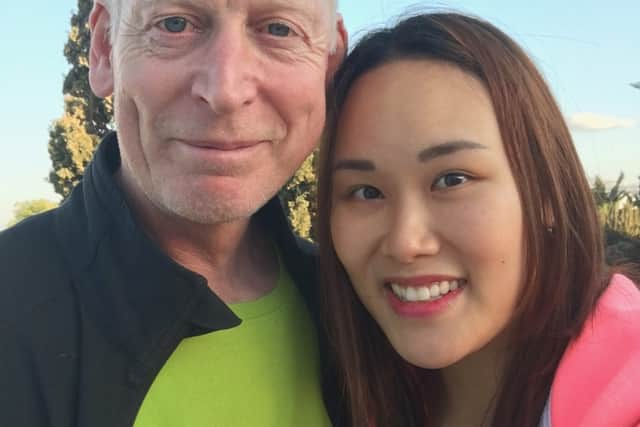

Finding meaning in life is equally important. Any philosopher will tell you that the universe is absurd; without purpose. It is up to every individual to create their own meaning by coming to understand their core values and what they actually want to achieve. Recipe 8 provides the figurative crash helmet we need to cope with this reality, offering friendly guidance on how to exorcise those little demons such as self-reproachment and self-pity that want to take us down the wrong road. Ultimately, we are masters of our own fate, and can take many positive actions to become happier and more fulfilled once we fully accept that it’s our hands on the steering wheel.
Taken together, the recipes offer a collective call to action that are meant to shake readers out of any complacency or negativity towards their own potential. There are many self-assessment tests to complete along the way so that you get a good grasp of your current situation. After all, you can’t get to Point B if you don’t know where Point A is. Each chapter is broken down into smaller sections, and is generously illustrated with diagrams and example scenarios to help anchor lessons firmly in the mind. In the wrong hands the book could have been dry, or preachy, but Petlo, a real-life couple, inject their own personality into every page and, as suggested in Recipe 7, are open about how the lessons have benefitted them.
8 Recipes for Life is, then, a complete resource to personal transformation that should give readers the hope, confidence and momentum to change for the better. The recipes are all sound and realistic to achieve, and, in fact, the book is the next best thing to having your own life coach on call 24/7.
8 Recipes for Life is available now on Amazon UK, priced £11.11. For more information visit www.petlo.co.uk.
Meet the Authors: Petlo
Self-help coaches Petlo are dedicated to helping others change for the better, but as we learn, their new guide to fulfilment is as much based on their own personal experiences and support network as their professional training and expertise…


Petlo comprises Pet Sutton and Elaine Lo, who are both personal development trainers and coaches. Between them they have studied everything from neuro-linguistic programming (NLP) and cognitive behavioural therapy (CBT), to clinical hypnosis and psychometrics. Whether their clients are looking to sharpen their business prowess or simply make some positive adjustments to their everyday life, Petlo have dedicated their lives to helping them achieve breakthroughs.
Their story, however, is as much a love story as business one. They first met each other in 2013 while on a training course in London, although Pet later forgot this… something that Elaine has reminded him about ever since!
On the face of it, and as they are the first to admit, they are an oddly-matched writing duo and an even more oddly-matched couple. When they met, Pet was 55 and Elaine was 26, living in the UK and Zurich respectively. Pet is English and comes from a background of “just about sufficient money” while Elaine’s father is wealthy.
Elaine studied philosophy in Hong Kong and communications in Zurich. She found that mentoring is a natural gift and that many of the life lessons that constitute the recipes in 8 Recipes for Life are based on those she has been guided by since young, though they were never formally collated until it came to writing the book. She says that she has always been interested in “the journey we take as humans and as souls”. Having lived in many different cities around the world, and met people from many different backgrounds, she has come to realise that all humans have something in common: “life challenges that come to teach us lessons”. Elaine’s driving philosophy is that “life is a journey of growth” and she is dedicated through her personal and corporate training and coaching to serving as a catalyst for others to experience that self-growth.
Pet, meanwhile, is a highly-acclaimed international trainer with extensive experience in Europe, Asia and the Middle East. Before moving into coaching, he had a successful corporate career with IBM, during which he obtained an MBA. Around a decade ago, however, he discovered a spiritual dimension to life and decided to become a clinical hypnotherapist. When he first met Elaine he was at a particular low point in his life, having been treated for melanoma—the most serious form of skin cancer—and having then been informed by doctors that he only had a 50-50 chance of surviving the next five years. Elaine became a shoulder to lean on, and they had numerous light-hearted and serious conversations over the next few years where Elaine pushed Pet to face his deepest issues using her life lessons, and rescued him from the fear of cancer.
Pet, in return, saved Elaine from “pursuing a conventional life” and continuously supports her to live her purpose. He helped her put the life lessons into context and deliver the content in a way that is clear and relatable to readers. Together, they have used their experiences to explore these life lessons and it is their firmly-held belief that we can all change our lives from being merely comfortable into truly fulfilling.
Exclusive Q&A with Petlo
We chat to Elaine Lo and Pet Sutton, aka ‘Petlo’, about their tried-and-tested recipes for personal change, and the essential actions required to come out of the process well served
Q. What gives Petlo the expertise to offer these recipes as a solution to personal fulfilment?
A. As we are both professionals in personal development and corporate training, we are only encouraging readers to experience what we have already experienced to help them come up with solutions to personal and professional problems. We might describe the lessons in the book as a distillation of this learning. The recipes are empirically tested too. We have shared them with friends and clients, many of whom have created great results. So these recipes are not just theoretical but practically effective.
Q. Can you give a few examples where you have used the lessons contained within the recipes in practice with clients, and what were the outcomes?
A. Say Client A is a very nice person who was often taken advantage of. Her friends expected her to pay for dinners and drinks without offering to pay back; her partners were uncaring and always put their needs before hers; her clients never paid on time. She didn’t understand why people treated her the way they did until she began to use Recipe 4 – when she understood that people treat us the way we allow them to. She decided to make changes in her ways of dealing with people. It wasn’t easy. She lost some ‘friends’ as her new way of living didn’t work for them. She had to step outside her comfort zone every time she asserted herself. But gradually things changed, she started to have more fulfilling relationships with people, even her clients appreciated her more.
Client B used to complain a lot about everything. He was very judgmental. He victimised himself all the time and didn’t take charge of his life. Upon identifying that his biggest problem stemmed from him judging himself, he decided to love and accept himself (Recipe 7). He started setting small goals and achieving them, gradually building his confidence; then he got used to taking responsibility for his life and started steering his life towards what he wants (Recipe 8).
Q. How important is mental attitude in achieving our goals?
A. It is of utmost importance because it drives our actions. Without actions we cannot achieve our goals. But if we take our actions grudgingly, we either don’t reach our goals, because half-hearted actions impact the outcome negatively, or we reach our goals but are unhappy the whole time, which is rather pointless, because we live the journeys, not the destinations. Having a resilient mental attitude also allows us to maintain our perspective and not give up easily when we experience setbacks, which are almost inevitable. Being positive is a part of this. We need to be mentally strong enough to take personal responsibility and understand that when we have taken all the advice we need, we need to act from our own agenda with confidence and determination.
Q. How would you define fulfilment, and how does this differ from comfort?
A. According to the Collins Cobuild Dictionary, “Fulfilment is a feeling of satisfaction that you get from doing or achieving something, especially something useful”; “Comfort is a feeling of relief from worries or unhappiness.” In other words, fulfilment is positively driven (towards satisfaction); comfort is negatively driven (away from worries or unhappiness).
The problem with comfort arises when it becomes a comfort zone. The comfort zone is a welcoming host who doesn’t let us leave easily. It promises more than it can offer – while we remain in it due to its allure, our fulfilment level (wherever it started as we entered the comfort zone) declines. If we choose to focus on fulfilment though (i.e. do what we do because we wholeheartedly love it) then we will stay fulfilled and can probably maintain our comfort.
Q. Can you explain the conflict between the head and heart, and how it negatively impacts our lives?
A. Conflicts between head and heart are experienced by many of us. The most typical one is the desire to pursue our dreams (in our heart) versus the security and comfort of living our normal life right now (in our head). If the conflict is 10% vs. 90%, we won’t feel torn/badly conflicted. We will probably maintain our current lifestyle, only thinking how there could be more in our lives every now and then. But if the conflict is 50% vs. 50%, we will be constantly fighting with ourselves. It is tiring when we spend so much time arguing with ourselves; we lose so much energy that we have little left for the real stuff in life.
Q. How does your original concept of head and heart thinking make people more empowered?
A. Head–heart thinking empowers us to achieve what we really want with minimum sacrifices. It empowers us to use all our energy achieving what we desire instead of wasting energy on arguing with ourselves, and to use our faculties in alignment and thereby harnessing our immense potentialities. It allows our head to say to our heart, “Looks after me I have some legitimate concerns!” and our heart to say to our head, “Let’s dare to turn this dream into something real so that we feel satisfied and alive!”
Q. In your book you suggest people shouldn’t be too nice. Can you explain what you mean by this?
A. People treat us the way we allow them to. Nice people who don’t defend their boundaries always attract people who take advantage. When we say don’t be too nice, we simply mean always defend your boundaries when someone crosses the line. Don’t pretend to go along with other people’s demands when we know they are asking too much of us. If we give more than we can (i.e. too nice), it won’t be sustainable and in the long run, we exhaust ourselves – the relationship either breaks down completely or it takes a longer break than needed where we recuperate. Not being too nice means we give the amount we can and not more than that.
Q. Which of the recipes were of the greatest benefit to you while writing your book?
A. (Elaine): I cannot recall how many times I was tested to live my own recipes while writing this book! The recipe that was of greatest benefit was Recipe 8 as I had to maintain my confidence when I didn’t see immediate results of how writing this book mattered. Recipe 5 also helped in that I contain all my doubts in my head and always believed in my project in my heart. Recipe 6 reminded me to stay fully present most of the time; minimising second-guessing myself and restricting it to the intervals.
(Pet): For me it was recipe 1 – in my life in general and while writing our book. In a nutshell I had a great 20-year career and marriage where I always did familiar things with familiar people in familiar places and was beginning to feel jaded. Fast forward another ten years and I was divorced, in an awful job where I was bullied and diagnosed with melanoma. These triggers (as well as meeting Elaine a couple of years later!) started me on a path of accepting challenges, doing things I had never wanted to do before, such as ballroom dancing, learning to deliver and teach hypnosis, starting a company and becoming self-employed, having a (very) long distance relationship, public speaking, delivering corporate training in the Middle East and others.
Q. What are the most common bad tendencies that hold people back?
A. The most common may be beating ourselves up. To err is human – if we take the learning and move on, we will become better at what we are doing. Blaming ourselves or others doesn’t help; it holds us back from making positive changes as we place the focus on who did wrong instead of what we can do differently in future.
Another is living in our minds instead of our real lives. This is about mindfulness. If during a meal, we are thinking about the meeting with the big boss tomorrow, we cannot enjoy the meal. If we are walking in the outdoors to relax but our minds focus on the leaking pipe in our house, we cannot really relax. Living in our minds instead being fully present in our life compromises not only our ability to be happy but also our ability to give our very best.
Q. What does the future hold for Petlo?
A. Our next book will be about cancer where Pet will be the main author. From personal experience of having had a 50% chance of living five years after surgery, Pet knows that cancer patients go to some dark places in their minds and consider actions and alternatives that are not always possible to discuss with friends and family. Pet will use his own experience and those of the patients he interviews to show what effect cancer has on patients in areas such as faith/religion; views on death; acceptance of treatment regimes; use of alternative medicine and diets. This will provide a unique insight into how we deal with cancer and enable us to have some of those uncomfortable conversations to support other people and to be supported by them.
We would like to promote head–heart thinking/dualism to be understood and used by more and more people to attain greater fulfilment. We plan to do this through the #believemoreexpectless campaign, where #believemore happens in the heart and #expectless happens in the head. An example: believe that our dream will be realised; don’t expect every step of the way to be easy. We are collecting successful stories of #believemoreexpectless to be compiled and published as a book. More details can be found on our website: www.petlo.co.uk.